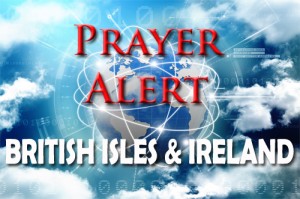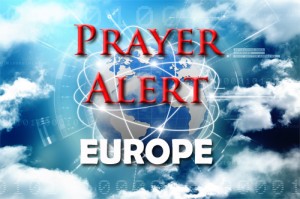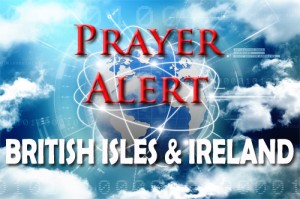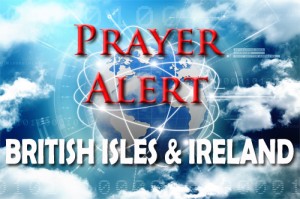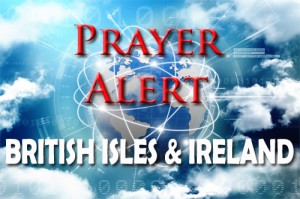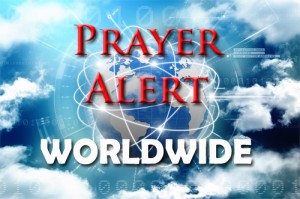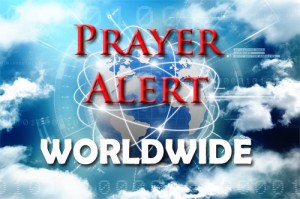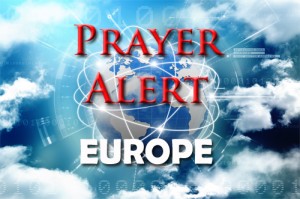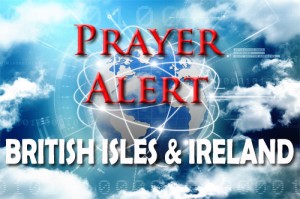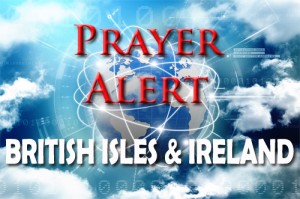Displaying items by tag: Government
Victims of slavery in UK
There are 13,000 slaves in Britain. Many argue there are many more. Those who escape suffer post-traumatic stress disorders. Many fear the police. Trust is so eroded that some are afraid to engage with charities. P worked twelve-hour days at a car wash after a ‘friend’ offered him the job. He soon discovered he wouldn't get paid. Worse was to come. The house he'd been placed in was guarded by two or three big men who took his phone and threatened to kill him if he tried to escape. One night when his guards were drunk he ran to the police. He now works in the Co-op’s ‘Bright Futures’ scheme, which helps survivors of modern slavery into work. Slavery survivors are given a four-week work placement, which ends in a non-competitive interview. If both parties are happy there is a full-time job on offer.
‘Integrity pacts’ in the EU
In 2016 one in three Europeans thought their governments and political leaders were mostly or entirely corrupt. When the survey was published, work began on a project with civil society and individuals in governments across the EU to demonstrate that ‘corruption is not inevitable’. The focus is public procurement, a sector which sees corruption-related losses of almost €5 billion per year in the EU. The Integrity Pact is a signed commitment by contractors and bidders in public contracts to act with integrity and transparency. An independent organisation monitors compliance with the commitment. Local government, civil society and private companies are using it to ensure that 17 big public contracts in 11 EU countries are being run efficiently, accountably and in the public interest, so that taxpayers’ money goes where it is intended.
Domestic abuse victims 'turned away' from refuges
Hundreds of victims of domestic abuse are being turned away from refuges in Wales due to lack of space. As many as 500 women, children and men were turned away in 2016-17, half the time because units were full. Welsh Women's Aid said there had been a 5% funding cut in specialist services for violence against women. There are fears that the loss of a protected Welsh government grant could see more refuges close (already 34 have done so since 2010). Fleeing violence and finding refuge is not just a welsh challenge. Across the UK one-third of all referrals to refuges are turned away, according to Women’s Aid; others say two out of three women are turned away. Specialist domestic violence services for black and ethnic minority women and women with disabilities have borne the brunt of the cuts. See also
The Budget and government's values
Nothing reveals a government’s values and priorities like a budget. Ekklesia suggests, ‘The Government’s heart is with the wealthy, healthy, strong, and secure. The poor, sick, powerless or insecure seem to be mainly regarded as a political problem, to be solved as cheaply as possible as this budget continued the seven-year pattern of prioritising deficit reduction over the welfare of Britain’s people.’ Austerity continues, although some view it as economically unsound, shrinking the economy as spending power is systematically reduced, and causing the most sustained fall in living standards for over sixty years. If the nation continues to overspend, it will cost future generations dear. Others suggest that the Chancellor could, if he chose, direct spending to the people and the sectors most in need, prioritise socially beneficial activity, and allow austerity to fall more heavily on areas less vital to our wellbeing.
Bereaved families lobby PM for legalisation and regulation of drugs
On UN's’ Universal Children’s Day, (20 November) ‘Anyone’s Child – Families for Safer Drug Control’ handed in a letter to 10 Downing Street calling for legal regulation of drugs. More people are dying in the UK from illegal drugs than ever before. Families who have lost loved ones to such drugs took a powerful message to Parliament, ‘Failed UK and UN drug policy killed our children, and the government should take control of the drugs market to protect others. We are a group of ordinary families who have joined together because we share the grief and sorrow from having loved ones who have been hurt by our failing drug laws. Our group has now expanded internationally - Kenya, Afghanistan, Mexico, Canada, Belgium. We are uniting to demonstrate that the drug war causes untold misery in every corner of the world.’
Uganda: Over 9,000 drop out after registering for PLE (Primary Leaving Examination)
Uganda: Over 9,000 drop out after registering for PLE (Primary Leaving Examination)
Pupils who pass their PLE exam can progress to secondary school. Primary school tuition is free but pupils, especially in rural areas, face serious challenges to finishing their education. They lack books and pens, often having to study all day on an empty stomach since no meals are provided at school, and schools often have poor teaching methods. Information obtained from Uganda National Examinations Board website indicate that out of 333,482 pupils who registered for PLE from 2010 to 2016, a total of 9,320 did not sit. A government official said, ‘Grazing livestock is one of the major reasons for the school dropout.’ The other reasons keeping children out of school, he said, are poverty, underage marriage, trading, tea picking, stone quarrying and mining. However he said they have engaged parish chiefs, sub-county chiefs and chairpersons of school management committees to arrest parents of children who are removed from school See also https://www.theguardian.com/katine/2010/feb/08/education-system-explainer
Zimbabwe: Celebrations - then what?
On the 22nd November, when President Mugabe resigned, celebrations on the streets resembled scenes inside a stadium after a soccer world cup victory. Like many Sub Saharan Africa countries, Zimbabwe’s population is young, 60% of the population is under 25 and 70% have known no other president. His successor Mr Mnangagwa, when minister for national security, was notorious for overseeing the the brutal 1983 campaign against supporters of Mugabe rival Joshua Nkomo. It became known as ‘Matabeleland massacres’. Between 10,000 and 20,000 Ndebele people died during the civil conflict, which involved the Zimbabwean Fifth Brigade, equipped and trained by North Korea. Mnangagwa is rumoured to have amassed a sizeable fortune, been involved in developing Harare diamond trading and was targeted by US sanctions early 2000, for undermining democratic development in Zimbabwe. He was also investigated by the UN for exploitation of mineral resources in Congo. Pray that his succession is not a continuation of the corrupt status quo.
Europe: complaints, confusion, confrontation and change
In Britain, we see chaos and confusion surrounding government. It is not just in Westminster; Brussels has many political, legal, commercial and ideological ‘unknowns’. Throughout Europe there are signs of growing discontent and dissatisfaction with policies and attitudes that have been followed by traditional leaders for decades. In Catalonia, independence protesters brought areas to a standstill as they objected to the incarceration of former nationalist ministers and vice-president Oriol Junqueras. Young people are rising up to challenge traditional authority. France, Austria, Italy and the Czech Republic have all voted for young leaders. Austria voted in October for 31-year-old right-wing Sebastian Kurz, who is talking to the far-right Freedom Party about forming a government. 30% of the Czech Republic voted for anti-establishment leader Andrej Babis, and Germany’s far-right Alternative for Germany (AfD) party won 94 seats in the Bundestag.
Parliament ‘must not be shut out of trade deals'
The Trade Justice Movement has welcomed the Government’s recognition, in its white paper, that our trade policy should be ‘transparent and inclusive’. However it has criticised its commitments so far as woefully inadequate, in particular the lack of any clear role for parliament in scrutinising trade deals. The white paper outlines the contents of the forthcoming trade bill, a cornerstone of the Government’s planning for Brexit. Trade deals have profound effects across domestic policy: health, environment, jobs, inequality, and climate. As a result, campaigners are calling for a democratic and transparent process for negotiating and agreeing trade deals after Brexit, with parliamentary oversight at its heart. So far 90 MPs have signed an early day motion supporting the campaign, calling for clear legislative frameworks guaranteeing the role of Parliament in trade policy.
Northern Ireland: pray for a better debate
There are reports of a change of tone between the Democratic Unionist Party (DUP) and Sinn Féin; however, at present the prospect of a Northern Ireland executive and assembly being re-established remains elusive. The secretary of state has warned that Northern Ireland is on a glide path to the British government stepping in. While ‘stepping in’ remains vague enough to hold off direct rule by British ministers for now, options are running out. Further rounds of budgets will need to be signed off, and key decisions around health, education and capital investment cannot be postponed indefinitely. It is nearly nine months since the executive was brought down.
